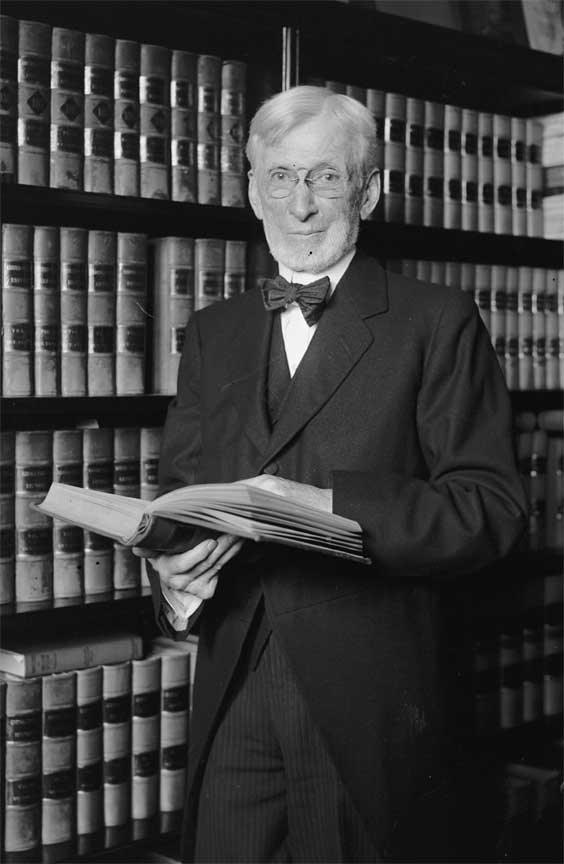Joseph McKenna

Joseph McKenna’s birthdate is not known certainly - it is usually cited as August 10, 1843, although it could also be August 14 of that same year. He was born in Philadelphia, to an Irish-born baker father and an English immigrant mother. McKenna was enrolled in a local parochial school, until his family decided to relocate in order to escape anti-Irish-Catholic violence and hostility and economic insecurity. In 1854, with the dramatic drop in steamship prices, the family moved West to Benicia, near San Francisco. After the death of McKenna’s father, the children of the family helped their mother keep the family bakery in business. McKenna continued studying at parochial schools, and took courses in law at the Benicia Collegiate Institute. He graduated from the Institute in 1864, and was admitted to the bar the following year.
After only a few months of private practice, he was elected district attorney for Solano County, and was reelected in 1867. He married German immigrant Amanda Frances Bornemann, and the couple had four children who survived childhood. Active in Republican politics, McKenna was elected to the California Assembly in 1875. He developed into a skilled orator and quick-thinking speaker and cross-examiner. He was elected to the US House of Representatives in 1884, and was reelected to three further terms. In the House, McKenna generally followed the party platform on issues like tariffs, business regulation and monetary policy. In addition, he supported measures to restrict the freedom of Asian immigrants, especially those from China. Early in 1892, during his fourth term, he was appointed to the Ninth Circuit Court of Appeals by President Benjamin Harrison. He served without distinction for five years, although he did surprise critics by showing impartiality in railroad cases despite his personal and political friendship with California senator Leland Stanford, who was president of the Southern Pacific and Central Pacific railroads.
When McKinley became President, he discussed appointing McKenna as Secretary of the Interior, but McKenna dissuaded him, concerned about potential conflict caused by a Roman Catholic Secretary of the Interior being placed in authority over Protestant missionaries to the Native Americans. Instead, McKenna became US Attorney General, and became the first Californian to hold a cabinet position. In December 1897, McKenna was nominated to replace retiring Supreme Court Justice Stephen J. Fields. Opposition to his appointment was fierce, but his support in the Senate enabled him to win confirmation in January 1898. Conscious of his limited credentials, McKenna took courses at Columbia Law School for several months to augment his legal training before taking his seat on the Court.
McKenna served on the Court or twenty-seven years, and wrote 659 opinions. He was a centrist, and wrote few dissents. He holds the distinction of being the first Supreme Court Justice to own a gasoline-powered automobile.
In 1915, McKenna suffered a slight stroke, and his health deteriorated in the following years. His health drastically affected his behavior, causing him to lose his reasoning and become highly sensitive and volatile. His colleagues on the Court secretly decided not to allow his vote to be decisive in close decisions, and Chief Justice William Howard Taft urged him to retire. He refused, until, at Taft’s insistence, he retired on January 5, 1925. McKenna died almost two years later, on November 21, 1926.
 >
>